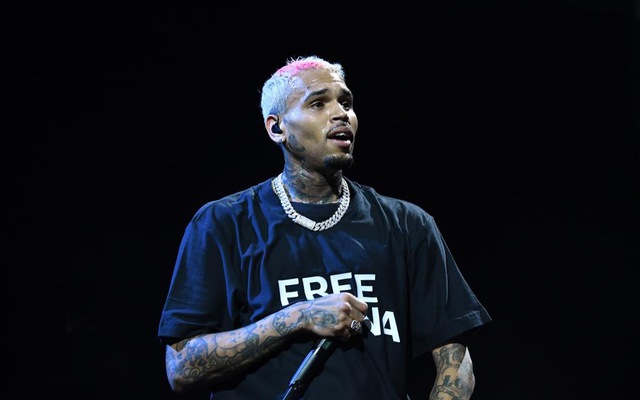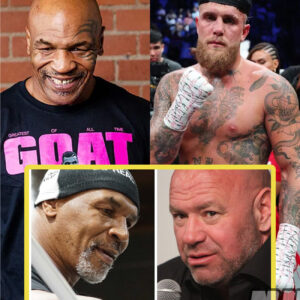In the world of music, where glamour and success often take center stage, there lurks a darker reality that many are reluctant to confront.
Recent allegations against music mogul Diddy, also known as Sean Combs, have shed light on the pervasive culture of exploitation and abuse within the industry.

From allegations of pressuring artists into compromising sexual situations to rumors of illicit parties and manipulative tactics.
The revelations have rocked the music world and sparked a conversation about the price of fame.
The allegations surfaced in various forms, ranging from personal accounts to anonymous sources within the industry.
One of the most startling claims involves Diddy’s alleged coercion of artists into engaging in sexual acts in exchange for career advancement.
Artists like Chris Brown have come forward, accusing Diddy and others of pressuring them to conform to certain sexual demands in order to further their careers.
But Diddy is not the only one implicated in these allegations. The music industry as a whole has been accused of fostering a culture of exploitation and manipulation.

Where vulnerable artists are lured into compromising situations under the guise of fame and success.
Some have even suggested that this behavior is systemic, with powerful figures within the industry actively engaging in predatory behavior to maintain their positions of power.
The allegations against Diddy have also shed light on the broader issue of LGBTQ+ representation in hip-hop and the challenges faced by artists who identify as such.
While some, like Frank Ocean, have bravely come out and shared their experiences, others have been subjected to discrimination and harassment.
The music industry, long dominated by heteronormative ideals, is slowly starting to reckon with the need for greater diversity and acceptance.
Moreover, the allegations against Diddy have raised questions about the role of women in facilitating these exploitative practices.
Reports suggest that women may have been involved in recording and documenting these illicit activities, raising concerns about complicity and accountability within the industry.
In the midst of these allegations, it’s important to remember the human cost of these actions.
Artists like Shaquille Stewart, who allegedly succumbed to the pressures of the industry, serve as a sobering reminder of the toll that exploitation can take on individuals.
Stewart’s tragic death highlights the need for greater awareness and accountability within the music industry.
As the allegations continue to unfold, it’s clear that the music industry is at a crossroads.
Will it continue to turn a blind eye to the exploitation and abuse that have long plagued the industry, or will it finally confront these issues head-on?
Only time will tell, but one thing is certain: the truth must be exposed, and justice must be served for the victims of exploitation and abuse.
News
(VIDEO) Dana White REACTS to Mike Tyson vs Jake Paul POSTPONED FIGHT
**Anderson Silva and Chael Sonnen: From Boxing Match to Hall of Fame Induction** In an unexpected turn of events, former MMA rivals Anderson Silva and Chael Sonnen…
(VIDEO) Mike Tyson Just ANNIHILATED Jake Paul And WARNED To FINISH Him!
**Iron Mike vs. The Problem Child: The Showdown of Eras** The boxing world is abuzz with the upcoming clash between two unlikely adversaries: the legendary Mike Tyson…
(VIDEO) MIKE TYSON SCARY NEW FOOTAGE!👀(FULL TRAINING) Mayweather, Lennox & Joe Rogan WORRIED for JAKE PAUL??
### Mike Tyson vs. Jake Paul: The Fight That Never Was The world of boxing thrives on spectacle, and few events captured the public’s imagination like the…
(VIDEO) Joe Rogan Just RIPPED Jake Paul After He Quit Mike Tyson Fight
### Jake Paul vs. Mike Tyson: The Fight That Never Was In a world where spectacle often triumphs over substance, Jake Paul’s announcement to fight Mike Tyson…
(VIDEO) Floyd Mayweather Just WARNED Jake Paul To CANCEL Might Tyson Fight
### Jake Paul vs. Mike Tyson: The Looming Showdown and Floyd Mayweather’s Dire Warning In the ever-dramatic world of boxing, a potential clash between social media sensation…
(VIDEO) Joe Rogan Just EXPOSED Jake Paul With LEAKED Audio Files For BRIBING The Referee
In an unexpected twist, a leaked video has surfaced showing a private match between Jake Paul and Mike Tyson, revealing that Paul had to pay approximately $100…
End of content
No more pages to load











